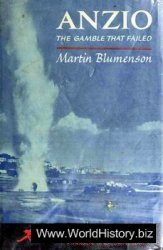Leech Lake Reservation
Dennis Banks was born on April 12, 1937, on the Leech Lake Chippewa Reservation in central Minnesota, about one-third of the way from the northern border of the state. The area was the site of the last battle between Ojibwas (also known as Chippewas) and the U. S. army, which occurred in 1898. Banks’s birth took place in the home of his maternal grandparents, Jenny and Josh Drum-beater. The small Drumbeater house, which lacked both electricity and indoor plumbing, also provided shelter for Banks’s older siblings, Mark and Audrey. He later would have a younger sister, Charolette, as well. The father, Walter Chase, entered the military and then built a new life for himself, establishing a second family and having little contact with Dennis and his siblings.
Banks received his Ojibwa name, Nowa-Cumig, from a dream his grandfather had. The name means “at the center of the universe” and would prove apt by the 1970s, when Banks became pivotal, if not at the center of the entire universe, then at least at the center of the American Indian universe. Banks, along with many Ojibwas, prefers to call himself an Anishinabe, a name that means “first peoples.”
Banks spent the early part of his childhood with his mother, grandparents, brother, and sister at Headquarters Bay. As he reached school age, the local school moved from the village of Federal Dam near Headquarters Bay to the town of Walker west of Leech Lake. Consequently, Banks’s mother moved with the children to Old Agency, a settlement near Walker. As Banks notes
In his memoir, Ojibwa Warrior, which he co-wrote with Richard Erdoes, he mainly spoke English as a child, although he was able to speak Ojibwa to some extent, and his grandparents spoke the native language. His mother, who had attended an Indian boarding school, spoke English with the children, having been permanently influenced by common boarding-school efforts to convert students to Euro-American culture, including use of the English language.
By 1942, Banks was experiencing a growing isolation that he would not overcome until years later. His mother was growing distant and eventually remarried. In addition, all three of the school-age children were bused off to boarding school at Pipestone in the southwestern corner of the state. As was common in boarding schools run for Indian students, young Dennis had his long hair cut short and his clothes replaced by a school uniform complete with black shoes. During his time at Pipestone, his mother never visited, although the journey would have been long and difficult for her. She wrote, however— letters read to Dennis by his brother and sister. During the summer, when most students were able to go home, the Banks children stayed at Pipestone. The ongoing effort to transform students there into imitation Euro-Americans worked well, as Banks describes in Ojibwa Warrior:
Their efforts to acculturate us extended even as far as our history books, which
Depicted Native people as murderous, mindless savages----I began to hate
Myself for being Indian, and made myself believe that I was really a white boy. My white teachers and their books taught me to despise my own people. White history became my history because there was no other. When they took us once a week to the movies—the twelve-cent matinee—I cheered for Davy Crockett, Daniel Boone, and General Custer. I sided with the cavalry cutting down Indians.
In my fantasies I was John Wayne rescuing the settlers from “red fiends.” I dreamed of being a cowboy. My teachers had done a great job of brainwashing me. They had made me into an “apple”—red outside but white inside.1
Finally, his grandparents came for a visit. The result was to revive Banks’s memories of his early years at Leech Lake rather than to ease the pain of his long separation from Leech Lake. After they left, he tried to run away but was captured and brought back.
Banks was sent to Wahpeton, North Dakota, for his seventh and eighth grades. He spent ninth grade at Flandreau, South Dakota. By the age of 16, Banks had all that he could take of the boarding schools: He walked 18 miles to Pipestone, Minnesota, where he caught a freight train part of the way home, hitchhiking the rest of the way to Leech Lake.
Back home, Banks attended high school at Walker. Finally, he was not in an institution run by the Bureau of Indian Affairs (BIA). That offered new possibilities and new challenges. He was mainly in school with white children, but he was able to reclaim something of traditional Ojibwa life. He also had the freedom to hitchhike to Minneapolis to visit his sister. Still, he had to find a future, and the reservation offered few paths forward.
The Air Force
Dennis Banks’s choice of a path into the future was the U. S. Air Force. Before he left to join the military, an uncle gave him a small medicine bundle to wear around his neck. With his protective medicine, he entered the Air Force in April 1954 and trained as an aerial photographer. The FBI conducted a background check of Banks, and he received top-secret clearance to work with secret material, principally aerial photographs of China, Korea, and the Soviet Union.
Banks was sent abroad to Japan and initially stationed at Itami Air Base in Osaka. He came to love Japan as well as a young Japanese woman whom he met there. He found himself recognized as an American Indian but also accepted as a human being. At a bar named The Top Hat, he met a bartender named Machiko. She was only 16, a year younger than Banks, but they quickly fell in love. When Banks’s unit was transferred to Yokota Air Base, operated by the Strategic Air Command near Tokyo, Machiko went with him. The young couple shared a house with another soldier and his girlfriend, spending the next three years together.
Banks and Machiko had a daughter, Michiko, and decided to marry. The ceremony was performed by a Shinto priest, but when Banks applied for permission to also have a civil ceremony, the Air Force refused, citing a policy against U. S. servicemen marrying Japanese women. Nor would Air Force officials recognize the Shinto marriage. Banks was later informed that Machiko’s family was suspected of being communists; as a consequence, his security clearance was withdrawn.
Angered by the military’s response to his marriage, Banks went AWOL with his wife and daughter. Tracked down, he was arrested, court-martialed, and jailed for 30 days. After being released, Banks tried again to get away with his family but was once more apprehended. He was sent back to the United States, while being forced to leave his wife and baby behind. An escape attempt when the plane stopped at the Midway Islands failed, and he was forced to continue to the United States.
Banks’s intention was to save enough money to bring Machiko and Michiko to the United States. He had little success in raising the necessary money, and his steady descent into heavy drinking further blocked that effort. Banks’s memoir, published in 2004, recounts efforts that he made over the years to try to find his Japanese family, including many trips back to Japan. At the time when his memoir was published, he had not been able to locate either wife or daughter. He writes of these trips: “Every now and then a young girl will come up to me and say, ‘My father is an American Indian.’ Shivers run through my whole body. But then she is not Michiko at all, but someone else’s child.”2
Incarceration
The early 1960s found Dennis Banks back in Minnesota, living in Minneapolis with friends from military days. Banks spent a great deal of time hanging out
In bars and was repeatedly arrested—he mentions 25 times in his memoir—for being drunk and disorderly, or just for being Indian.
Becoming familiar with jails, Banks also learned that American Indians made up a sizable percentage of the jail population in Minnesota—approximately one-third. The climax of these arrests came in 1966 when, now married to an Indian woman named Jeanette, and with eight children (four from her previous marriage and four from his marriage with her), he stole 16 bags of groceries to try to feed his large family.
Another man, Bill, was also arrested for the burglary. Bill, a white man, had an attorney and received probation; Banks, without an attorney and of Indian heritage, was sentenced to five years in prison. Banks served about two years at Stillwater Prison in Minnesota before being released in May 1968. During this time in prison, he began to read about Indian history and became increasingly political. A book that especially affected Banks was Black Elk Speaks, which encapsulated the wisdom of the Oglala spiritual leader Black Elk as recorded by John Niehardt.
By the time Banks was released from prison, Jeanette had left. With no one specific to be responsible for, Banks began traveling down a long path of becoming responsible, in a sense, for all Indians. He contacted an old boarding-school friend, George Mitchell, and set up a meeting to begin organizing for the cause of Indian civil rights.




 World History
World History









